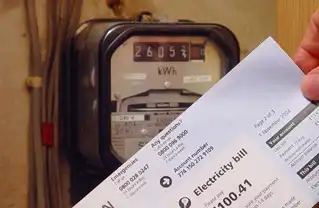Duke argues for coal plants: Public can have its say on power plan
By The News & Observer
Substation Relay Protection Training
Our customized live online or in‑person group training can be delivered to your staff at your location.

- Live Online
- 12 hours Instructor-led
- Group Training Available
During the public hearings in Raleigh, the Charlotte utility will try to persuade state regulators to approve twin power plants that are estimated to cost $3 billion.
The cost of new plants, or whatever energy option regulators end up approving, would be paid by Duke Energy's customers through rate increases.
Duke is proposing plants fueled by an energy mainstay of the industrial era: coal. The company contends that the proposed coal-fired plants are needed soon - by 2011 - to meet the state's rapidly growing energy demand. Duke Energy is requesting a decision from the state Utilities Commission by Feb. 28.
The debate that begins this morning represents the biggest opportunity that environmentalists have had in decades to block the construction of conventional power plants and push for energy alternatives that are increasingly being adopted in other states.
Coal-fired power plants emit carbon dioxide, which critics say contributes to global warming.
Duke's case become more difficult two months ago when the company was forced to increase the estimated cost of the plants from $2 billion to $3 billion. To get the utilities commission's approval to build the 1,600-megawatt power plants about an hour west of Charlotte, Duke will argue that coal is still the cheapest energy option.
Duke's witnesses are scheduled to include chief executive Jim E. Rogers, who is hoping to help sway the public - and regulators.
Duke's Cliffside project went through one round of public hearings last year, but the proposal requires another round of hearings because the 50 percent cost increase is so dramatic that it rendered last year's testimony obsolete. Since the first hearings took place, alternative energy has gotten a boost from an energy consultant hired by the state, who concluded that North Carolina could get as much as 10 percent of its electricity from wind, solar and other alternatives.
"This is the biggest story in a generation on this energy issue," said Jim Warren, a Durham environmentalist. "Duke's case is falling apart. They've got to try the proven value of these energy- efficiency programs."
That sentiment is seconded by the state attorney general, who is urging the utilities commission to let Duke build only one of the two proposed coal plants to generate 800 megawatts of power. The attorney general argues that energy-efficiency programs - financial incentives for energy audits, duct sealing, fluorescent bulbs, insulation and Energy Star appliances - could take up the slack if the other proposed plant is canceled.
These energy efficiency programs "have produced measurable savings in other states," the attorney general said in a filing.
Duke Energy is the state's largest utility, with 1.6 million customers in North Carolina, including about 115,000 in Durham County, 45,000 in Orange County and 1,700 in Wake County.
Despite increasing pressure from critics, Duke has an all- important ally in its bid to build new coal plants. The Public Staff, the consumer advocacy arm of the utilities commission, agrees with the Fortune 500 company's energy-demand projections and says that modern coal plants are a proven, highly efficient energy technology. The utilities commission almost always adopts the conclusions of the Public Staff.
The proposed coal plants "are the best option for economically and reliably meeting system energy requirements," Public Staff engineer Thomas Lam wrote in a filing.
The Public Staff has concluded that the only other option for meeting the state's energy needs would be to build power plants fired by natural gas. Although natural gas pollutes less, the supply is dwindling and prices are volatile. Nuclear plants are not feasible, because they could not be ramped up in five years.
If it's built, the proposed Cliffside project would be backed by $125 million in federal tax credits, under the 2005 Energy Policy Act's goal of achieving energy independence. Duke Energy is also in line to receive $133.5 million in federal tax credits if it builds a so-called clean-coal gasification power plant in Indiana.











